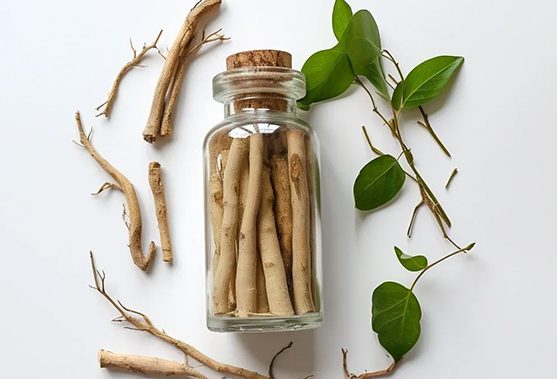Uncategorized
Ibogaine Guide: Effects, Treatment, and Where to Buy
Ibogaine Guide its Effects and Treatment – Ibogaine is a powerful psychedelic known for its unique effects and potential in addiction therapy and personal growth. It has garnered significant interest for its potential therapeutic benefits, particularly in addiction treatment. This guide explores where to buy ibogaine, its psychedelic effects, and treatment options available for those considering this unique substance.
1. What Is Ibogaine?
Ibogaine is a naturally occurring psychoactive substance with a long history of use in traditional African spiritual practices. It is classified as a powerful psychedelic and has gained attention in modern times for its potential in treating addiction and various psychological conditions.

1.1. Chemical Properties and Effects
Ibogaine is an indole alkaloid, and its chemical structure is similar to other hallucinogens like DMT and psilocybin. Its effects are complex and can vary widely among individuals. Key aspects of its effects include:
- Altered Perception: Users may experience significant changes in sensory perception, including visual and auditory hallucinations.
- Introspective Insights: Many users report profound insights into their personal issues and life patterns. This introspective journey can be both therapeutic and challenging.
- Euphoric and Distressing Experiences: The effects can range from euphoric and enlightening to intense and distressing, making the experience highly subjective.
1.2. Duration and Intensity
Ibogaine’s effects can last between 8 to 12 hours, depending on the dose and individual sensitivity. The intensity of the experience can be overwhelming, particularly for those unprepared for its psychological impact. The experience often involves a period of deep introspection and emotional processing.
2. Where Can I Buy Ibogaine?
Acquiring ibogaine involves navigating a complex landscape of legality, availability, and quality. Here’s what you need to know about where to buy ibogaine:
2.1. Legal Considerations
The legality of ibogaine varies significantly by country and region:
- United States: Ibogaine is classified as a Schedule I controlled substance, meaning it is illegal to manufacture, distribute, or possess it. However, it is not illegal to purchase ibogaine from abroad or in countries where it is not controlled.
- Canada: Ibogaine is also a controlled substance in Canada. Its use is restricted, and it is not approved for medical use.
- Europe: Legal status varies by country. In some European countries, ibogaine is not classified as a controlled substance, making it easier to access. However, regulations and restrictions may still apply.
- Australia: Ibogaine is classified as a prohibited substance in Australia, and its use is heavily regulated.
2.2. Sources for Purchasing Ibogaine
- Online Vendors: Some online vendors sell ibogaine, often in the form of extracts or capsules. However, purchasing substances from online sources poses significant risks, including legal issues, quality concerns, and potential health hazards.
- International Clinics: In countries where ibogaine is not controlled, some clinics offer ibogaine treatment programs. These clinics often provide ibogaine as part of a structured treatment protocol and ensure the substance’s quality and safety.
- Traditional Sources: In regions where iboga is traditionally used, such as parts of Central Africa, ibogaine may be available through traditional healers or spiritual practitioners. This route may provide authentic and culturally relevant experiences but comes with its own set of challenges and risks.
3. Ibogaine Treatment: What to Expect
Ibogaine treatment is often sought for its potential to address addiction and various psychological issues. Here’s an overview of what to expect from ibogaine treatment:

3.1. Treatment for Addiction
- Mechanism: Ibogaine is thought to interrupt the cycle of addiction by resetting the brain’s neurochemical pathways. It may reduce withdrawal symptoms and cravings, making it a potentially effective treatment for substance use disorders.
- Process: Treatment typically involves a comprehensive program that includes medical supervision, psychological support, and post-treatment care. The ibogaine experience is often followed by integration therapy to help individuals process and make sense of their experiences.
3.2. Medical and Psychological Supervision
- Pre-Treatment Assessment: Prior to treatment, a thorough medical and psychological assessment is conducted to ensure that ibogaine is a safe and appropriate option for the individual. This assessment includes evaluating health history, mental health conditions, and potential contraindications.
- Medical Monitoring: During the treatment, individuals are closely monitored by medical professionals to manage any potential adverse effects and ensure safety. Ibogaine can have significant effects on the cardiovascular system, making medical supervision crucial.
- Integration Support: Post-treatment integration is a critical component of ibogaine therapy. It involves working with therapists or counselors to process the insights and experiences gained during the ibogaine journey. Integration helps individuals apply these insights to their daily lives and ongoing recovery.
3.3. Risks and Considerations
- Physical Risks: Ibogaine can cause significant physiological effects, including changes in heart rate and blood pressure. It is essential to undergo treatment in a medical setting where these effects can be monitored.
- Psychological Impact: The psychedelic experience can be intense and challenging. Some individuals may experience profound emotional and psychological effects, which can be both therapeutic and distressing.
- Legal Risks: Purchasing or possessing ibogaine where it is illegal can result in legal consequences. It is important to understand the legal implications and navigate them carefully.
4. Alternatives to Ibogaine Treatment
For those interested in exploring options beyond ibogaine, several alternatives offer potential benefits for addiction and psychological healing:
4.1. Psychedelic Therapy
- Psilocybin: Derived from certain mushrooms, psilocybin has shown promise in treating depression, anxiety, and addiction. Research into psilocybin therapy is expanding, and it is increasingly recognized for its therapeutic potential.
- MDMA: Known for its empathogenic effects, MDMA is being studied for its potential in treating PTSD and other psychological conditions. Clinical trials are exploring its use in therapy.
4.2. Traditional Therapies
- Cognitive Behavioral Therapy (CBT): CBT is a well-established therapeutic approach for addiction and mental health issues. It focuses on changing negative thought patterns and behaviors to improve mental well-being.
- Support Groups: Programs such as Alcoholics Anonymous (AA) and Narcotics Anonymous (NA) provide support and community for individuals in recovery from addiction.
5. The Future of Ibogaine and Psychedelic Medicine
The field of psychedelic medicine is rapidly evolving, with increasing interest in the therapeutic potential of substances like ibogaine. Research, clinical trials, and evolving legal landscapes are shaping the future of psychedelic treatments.
5.1. Research and Development
- Clinical Trials: Ongoing research aims to better understand the efficacy and safety of ibogaine and other psychedelics in treating various conditions. Clinical trials are investigating optimal dosing, treatment protocols, and long-term outcomes.
- Regulatory Changes: As research progresses, there may be shifts in regulatory policies and greater acceptance of psychedelic treatments. These changes could impact the availability and accessibility of ibogaine and other psychedelic substances.
5.2. Integration into Conventional Medicine
- Medical Integration: The integration of psychedelic therapies into conventional medical practices could offer new treatment options for addiction and mental health disorders. Collaboration between researchers, clinicians, and policymakers is essential for advancing these therapies.
Conclusion
Ibogaine, derived from the Tabernanthe iboga plant, is a powerful psychedelic with significant potential for therapeutic use, particularly in addiction treatment. Understanding where to buy ibogaine, its effects, and treatment options is crucial for those considering this substance. While ibogaine offers promising benefits, it also comes with risks and legal considerations that must be carefully navigated. As research and interest in psychedelic medicine continue to grow, the future of ibogaine and other psychedelic treatments holds the potential for transformative advancements in mental health care.

Whether exploring ibogaine for its potential in addiction treatment or considering alternative therapies, it is essential to approach these substances with informed understanding and professional guidance. This guide aims to provide a comprehensive overview of ibogaine, its uses, and its place in the evolving field of psychedelic medicine.
